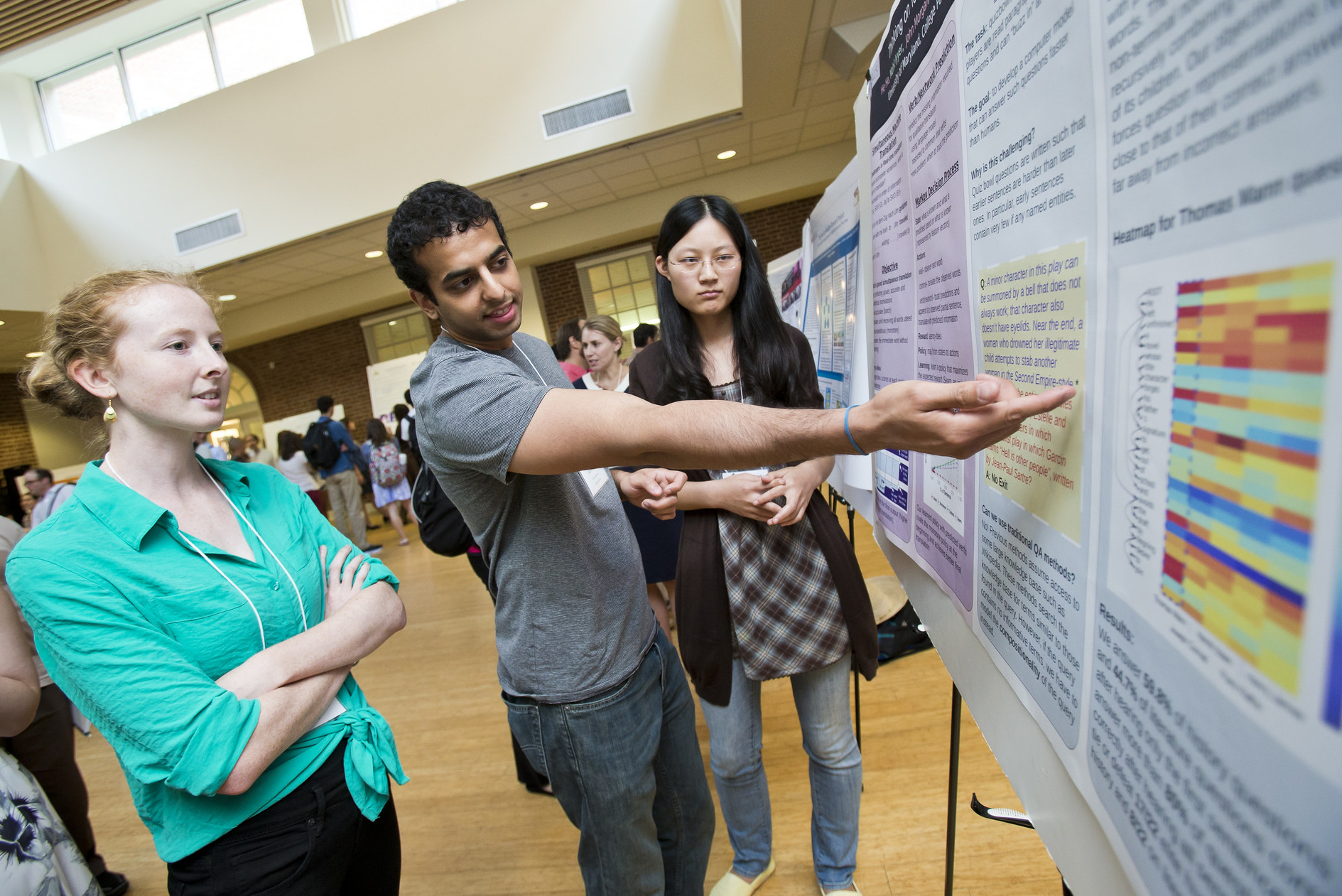Moving Beyond Big Data: $3M NSF Grant for Innovative Language Science Training
March 31, 2015
Maryland Language Science Center

The National Science Foundation has announced that the University of Maryland’s Language Science Center (LSC) will (again!) receive a $3M grant for innovative research and graduate training, this time as part of the first cohort of awards made through its new NSF Research Traineeship (NRT) program. This 5-year award will support a model of interdisciplinary graduate training that prepares students to be adaptable scientists in multiple settings and career paths. The project will connect research on humans and machines, via a focus on how to succeed when Big Data is not available. The project is led by faculty and students from 10 departments across the entire university. “I'm excited by the research theme, which takes a "Beyond Big Data" approach,” says Colin Phillips , program PI and LSC Director. “We’re interested in how humans and machines can learn more efficiently from ‘multi-scale data’. Everybody’s talking these days about Big Data, but the current frontier in language science involves how to do more with less, you could call it ‘medium data’ or ‘small data’. It’s important for building better language technology, and it’s important for improving language learning outcomes in children and adults. Current language technologies like Google Translate and Apple’s Siri rely on a Big Data approach that stores billions of utterances. But that approach won’t generalize to the vast majority of the world’s 7000 languages . And human children easily outperform the best current technology, though they learn language from far less data. Child brains somehow learn the language around them more efficiently. But we all know that learning a new language as an adult is much harder. And we’re learning more and more about how children who experience ‘ language poverty ’, growing up with smaller amounts of quality language interaction, face negative consequences that last a lifetime. We want to understand why some learners fare better than others.” A key venue for exploring the program’s research goals will be yearly “Summer Camps”, intensive research-only workshops that will bring together students and faculty from UMD and beyond. The program’s graduate training component is guided by the overarching research theme, as well as by a philosophy that successful team-based research depends on great science communication and leadership skills. Rochelle Newman , program co-PI, speaks of one of the program’s initiatives that takes advantage of UMD’s location in the Washington DC area: “NRT fellows will take part in policy internships where they will gain experience communicating science to policy makers and to the public; this might include visits to Capitol Hill, development and execution of advocacy messages, or shadowing lobbyists.” NSF also recognizes that its investments in new approaches to graduate training need to be scalable, and that it’s one thing to try out new ideas, and quite another to know what really works. So the NRT program will pay close attention to assessing student experiences and outcomes. For this, the LSC team will be joined by KerryAnn O’Meara of UMD’s College of Education, an authority on early career development and the leader of UMD’s NSF-sponsored ADVANCE program for inclusive excellence. This new award from NSF marks the University of Maryland as a leader in training future leaders in language science. It arrives on the heels of a $3M NSF IGERT graduate training program that has trained over 50 interdisciplinary language scientists over the past 7 years. In this first cohort of NRT awards the UMD project is one of only 8 selected from more than 250 proposals across all areas of science and engineering. This shows that UMD’s investment in Language Science as a priority area is paying off. Phillips said: “These awards are super competitive. Our original dream was to get one of them, so winning two in succession is just incredible. It’s a testament to the creative efforts of our fantastic community of students and faculty.” He explains that the first NSF training program had a transformative effect on language science at Maryland, and that this new program is sure to have a similar impact: “We’re fortunate to work with some of the best young minds in our field, and we’re always looking for ways to improve their training. We learned so much over the past few years of NSF support, and we’re sure that 5 years from now we’ll have learned important lessons that we don’t know about now.” Faculty and students in the NRT program draw from throughout Maryland's Language Science community, which spans the College of Arts and Humanities, the College of Behavioral and Social Sciences, the College of Computer, Mathematical, and Natural Sciences, the College of Education, the A. James Clark School of Engineering, and the iSchool, in addition to the Center for Advanced Study of Language. The co-PIs on the NRT program are Colin Phillips (Linguistics), Rochelle Newman (Hearing & Speech Sciences), Hal Daumé (Computer Science), Robert DeKeyser (School of Languages), and Bill Idsardi (Linguistics). For more about UMD's NRT program, including a copy of the proposal and other documents, see LSC's NRT pages Colin Phillips, NRT & IGERT program PI, has written a blog post for prospective submitters: Developing and funding interdisciplinary programs



